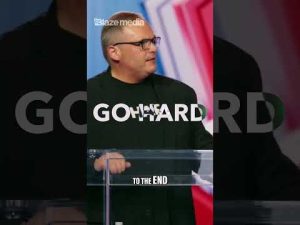In the bustling circus of political commentary, it’s not unusual to witness a couple of ringmasters butting heads, each wielding their own brand of ideology like mighty rhetorical clubs. This time, our attention turns to the rather engaging spar between Ben Shapiro, outspoken in his criticism of Tucker Carlson for platforming figures such as Nick Fuentes, known for his antisemitic views. Shapiro recently called out Carlson, labeling him an “intellectual coward” and “ideological launderer,” accusing him of softening and amplifying dangerous ideas.
The controversy centered around Carlson hosting figures like Nick Fuentes, leading Shapiro to lambaste Carlson for what he perceives as a dangerous platforming of extremism. Shapiro’s stance ignited a backlash from Carlson’s supporters while bringing into focus the ongoing debate within conservative circles about the acceptable limits of free speech and the responsibility of prominent platforms.
Shapiro’s critique suggested that Carlson’s actions were a disservice to everyday Americans, resonating with Shapiro’s broader standpoint against what he perceives as harmful ideologies. The dispute quickly spilled over into a broader philsophical disagreement concerning the inclusivity and responsibility of political discourse.
The tensions reveal a deeper reflection on what it truly means to call a country home. Are we facilitators of any and all ideas in the name of free discourse, or do we owe more to the heritage and community values that shape national identity? As this ideological clash continues to unfold, it invites both pundits and laypeople to ponder where the balance between freedom and responsibility should lie in America’s great political tapestry.







